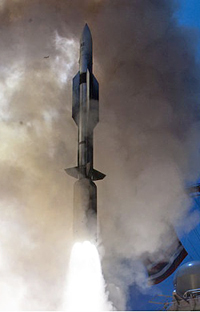
Rona Ambrose was a Member of the Trilateral Commission as reported in Vancouver's Georgia Straight, August 24, 2006.
Well shucks who knew. The Trilateral Commission is the public face of the those other secret societies of the corporatist ruling class like the Bilderbergers and the Davos Forum.
It is the original source for George Bush Seniors announcement of the New World Order.
Managing the International System Over the Next Ten Years: Three Essays
The Trilateral Commission (© 1997)
Bill Emmott, Koji Watanabe and Paul Wolfowitz
The 2006 annual meeting of the Trilateral Commission dealt with "Globalisation and Governance".
The Commission, which operates through three regional secretariats, coordinates task forces on a variety of pressing issues in international affairs and meets in regional groups as well as in an annual three-day plenary to discuss these studies and to share perspectives on common political, economic, and foreign policy challenges. The task force reports are published as a series called The Triangle Papers. Also, a report on the annual meeting is published each year as part of the Trialogue series. The annual meeting of Trilateral Commission members rotates among the three regions.
Holly Sklars book remains one of the best on the Trilateral Commission and it's importance in setting the agenda for Globalization, without falling into the tinfoil hat conspiracy theories that abound around ruling class institutions like these. As I wrote in my article; Conspiracy Theory or Ruling Class Studies
"The Trilateral Commission is international and is intended to be the vehicle for multinational consolidation of the commercial and banking interests by seizing control of the political government of the U.S." -- attributed to Senator Barry Goldwater.
The new "trilateralism" reflects the realization that the international system now requires "a truly common management," as the Commission reports indicate. The trilateral powers must order their internal relations and face both the Russian bloc, now conceded to be beyond the reach of Grand Area planning, and the Third World. Noam Chomsky: The Carter Administration: Myth and Reality
A Trilateral Commission Task Force Report, presented at the 1975 meeting in Kyoto, Japan, called An Outline for Remaking World Trade and Finance, said: "Close Trilateral cooperation in keeping the peace, in managing the world economy, and in fostering economic development and in alleviating world poverty, will improve the chances of a smooth and peaceful evolution of the global system." Another Commission document read: "The overriding goal is to make the world safe for interdependence by protecting the benefits which it provides for each country against external and internal threats which will constantly emerge from those willing to pay a price for more national autonomy. This may sometimes require slowing the pace at which interdependence proceeds, and checking some aspects of it. More frequently however, it will call for checking the intrusion of national government into the international exchange of both economic and non-economic goods." In other words, they were promoting world government by encouraging economic interdependence among the superpowers.
The Trilateral Commission was formed in 1973, and it is widely perceived as an off-shoot of the Council On Foreign Relations. According to Christopher Lydon, writing in the July 1977 Atlantic, "The Trilateral Commission was David Rockefeller's brainchild." At the time, David Rockefeller was Chairman of the Council On Foreign Relations, having been elected to that post in 1970. David Rockefeller became the founding Chairman of the Trilateral Commission, which consists of leaders in business, banking, government and mass media from North America, Europe, and Japan invited to join by Rockefeller himself.
A related purpose of the Trilateral Commission was to promote cooperation among the industrialized countries in the face of an emerging bloc of Arab, African and Asian states which had come to dominate the General Assembly of the United Nations.But the Trilateralists did not want to give up on the United Nations. The economic and political elites of America and Europe seek international political power in order to provide a stable investment climate, including protection against nationalization of their assets.
At the same time, the international bankers and multi- national corporations have gained much of their wealth through partnership with government. The corporate elite look to governments for lucrative contracts; taxpayer subsidized financing; and protection from competition.
The international bankers and multinational corporations have exploited two UN financial agencies in particular - the World Bank and the International Monetary Fund. But they have relied on their own national governments to attempt to protect their foreign investments.
The politicians have looked to a strengthened United Nations for a different reason. Politicians seek power. Control over their own government is all too often only a beginning to their ambition. History is littered with corpses who mutely testify to the imperial ambitions and arrogance of politicians.
In 1973, the U.S. was winding down its involvement in Vietnam. The Vietnam War had proved to be a costly mistake, and had turned a majority of the American people against the idea of military intervention in other countries.
As noted, the Trilateral Commission was founded in 1973, in the midst of the Middle East oil crisis. The ostensible cause of the oil crisis was a decision by the Organization of Petroleum Exporting Countries to dramatically raise the posted price for oil, with the price hike enforced by limited production quotas for each member country.11 Jun 1993 The Washington Times reports: "Presidential counsellor David Gergen resigned yesterday from the all-male Bohemian Club, three days after saying he would not run around naked at its annual Bohemian Grove encampment and insisting he would not quit. White House spokeswoman Dee Dee Myers announced the resignation along with Mr. Gergen's departure from 17 other interest groups, charities and public boards ranging from the Trilateral Commission, the Bilderberg Group and Council on Foreign Relations."
For Canadians our concern has to be that the Trilateralists promote deep integration starting with the original Mulroney Reagan FTA followed by NAFTA evolving into a continental alliance,or North American Union, including shared monetary standards.
Canadians On the Trilateral Commission 2005 appointments
Rona Ambrose, Member of Parliament, Ottawa, ONMaurizio Bevilacqua, Member of Parliament, Ottawa, ON
Arthur A. DeFehr, President and Chief Executive Officer, Palliser Furniture, Winnipeg, MB
André Desmarais, President and Co-Chief Executive Officer, Power Corporation of Canada, Montréal, QC; Deputy Chairman, Power Financial Corporation
Peter C. Dobell, Founding Director, Parliamentary Centre, Ottawa, ON
Wendy K. Dobson, Professor and Director, Institute for International Business, Rotman School of Management, University of Toronto, Toronto, ON; former Canadian Associate Deputy Minister of Finance
Peter C. Godsoe, Chairman of Fairmont Hotels & Resorts; Retired Chairman and Chief Executive Officer of Scotiabank, Toronto, ON
*Allan E. Gotlieb, Senior Advisor, Stikeman Elliott, Toronto, ON; Chairman, Sotheby’s, Canada; former Canadian Ambassador to the United States; North American Deputy Chairman, Trilateral Commission
E. Peter Lougheed, Senior Partner, Bennett Jones, Barristers & Solicitors, Calgary, AB; former Premier of Alberta
Roy MacLaren, former Canadian High Commissioner to the United Kingdom; former Canadian Minister of International Trade; Toronto, ON
John A. MacNaughton, former President and Chief Executive Officer, Canada Pension Plan Investment Board, Toronto, ON
Brian Mulroney, Senior Partner, Ogilvy Renault, Barristers and Solicitors, Montréal, QC; former Prime Minister of Canada
Hartley Richardson, President and Chief Executive Officer, James Richardson & Sons, Ltd., Winnipeg, MB
Gordon Smith, Director, Centre for Global Studies, University of Victoria, Victoria, BC; Chairman, Board of Governors, International Development Research Centre; former Canadian Deputy Minister of Foreign Affairs and Personal Representative of the Prime Minister to the Economic Summit
Ronald D. Southern, Chairman, ATCO Group, Calgary, AB
Barbara Stymiest, Chief Operating Officer, RBC Financial Group, Toronto, ON
See:
Bilderberg
Conspiracy Theory
Conspiracy
Ruling Class
Find blog posts, photos, events and more off-site about:
Rona Ambrose, Trilateral Commission, CFR, Bilderberg, Davos, Secret Societies, NWO, New World Order, Globalization, Conspiracy, Conspiracy theory, Bohemian Grove, Conspiracy Theories, Ruling Class, Chomsky, Carter, Bush, UN












